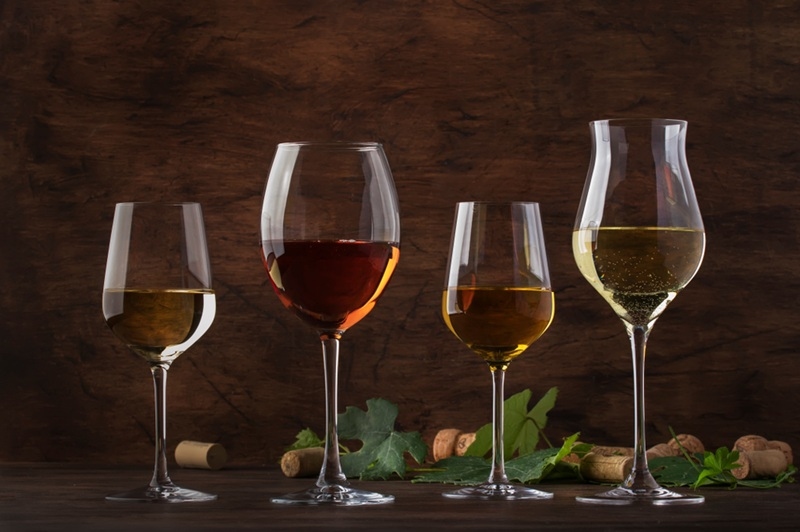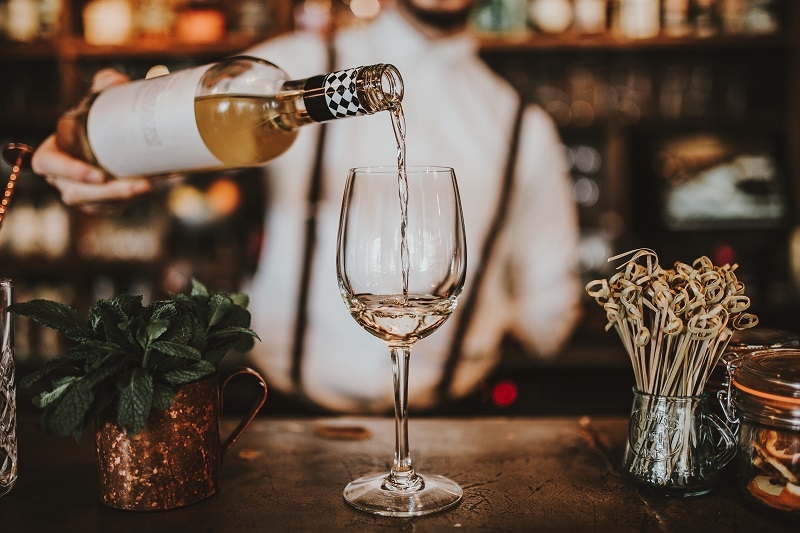Discover Exquisite Flavors With Octopus Wine Pairing

The world is filled with culinary delights, where you will find a new exotic dish to try daily. The evolution of our eating habits has made us more capable of diving deeper into the food sciences. Our knowledge about the different types of components found in all the eatable ingredients is easily accessible. This not only increases the spectrum of exploration but also brings a change in our routine lifestyles.
One of the most exciting trends among eateries is octopus wine pairing. A popular dish enjoyed worldwide; octopus is an incredibly versatile ingredient that suits a wide range of wine styles. Lets understand the connection between the unique flavors of octopus and discuss how to pair it with wines that will bring out its best characteristics.
What is Octopus Wine Pairing?
Wines are the life of every occasion, especially a celebration. These times call for the best experiences, whether in drinks or the food you have with them. Octopus wine pairing brings together the wines with the tantalizing taste of the dish prepared with octopus. Seafoods have always been tricky with the flavors, and octopus stands out from the ordinary ones. This means that you must be aware of how to bring the exceptional taste of the octopus by selecting the perfect wine to go with it.
The key to octopus wine pairing is to find a wine that will bring out the best in the octopus. This means selecting a wine with a flavor profile that complements the octopus. This could be a wine that highlights the earthy flavors of the octopus or one that brings out its sweetness. It is important to remember that the octopus should be the focus of the pairing, and the wine should be chosen to enhance its flavor.
To learn more about Food and wine pairing, read: The Ultimate Guide To Food And Wine Pairing Ideas
Octopus Flavor Profile
Octopus wine pairing combines an octopus's taste and a wine that would glorify it. Octopus, unlike any other organism, has more of a sweet and earthy flavor blended with a natural saltiness. You can give it a barbequed smoky flavor if you like your dishes that have a slightly burnt taste.
Octopus is a very versatile ingredient that can be cooked in various ways. The most common methods are boiling, grilling, and roasting. Each of these methods will bring out different flavors in the octopus. Boiling brings a more delicate flavor while grilling and roasting brings a more intense flavor.
Choosing the Right Wine
Now that you can imagine how your taste buds will light up when consuming an octopus-based dish, it is time to top it up with a wine that seals the deal. Combining these essentials means you must know if you like your meal entirely on the sweet end or if you like to purge it with a taste contrast.
If the octopus is cooked in a rich tomato sauce, a medium-bodied red wine such as a Cabernet Sauvignon would be a good choice. A light-bodied white wine such as a Sauvignon Blanc would be better if the octopus is cooked in a light, lemon-based sauce.
When selecting a wine, it is also essential to consider the octopus's texture. A crisp, dry white wine like Chablis would taste heavenly when the octopus is prepared as a light salad. A full-bodied white Chardonnay would be irresistible with a creamy octopus stew.
Best Wines for Octopus Pairing
Octopus wine pairing has been in the exotic experiences globally, and through them, we can confidently say that some wines are best chosen for it. Sauvignon Blanc is a light-bodied white wine whose subtle citrus flavor pairs perfectly with the earthy flavors of octopus. Chablis is a white wine with a refreshing, mineral-driven flavor profile that complements the lightly cooked octopus dishes.
Pinot Noir is a tasty red wine with a rich, earthy flavor profile that enhances the earthy flavors of octopus, highlighting its sweetness. Chardonnay is a full-bodied white wine with an elegant buttery flavor profile. Its creamy texture pairs perfectly with creamy octopus dishes. Riesling is a light-bodied white wine with a fruity flavor profile whose sweetness pairs beautifully with the sweetness of octopus.
Picking the Perfect Bottle

Now we have the right recipe for the octopus wine pairing learned and ready to be utilized. However, this is different from where the process is done; there is more to do to get the exact joy of this tradition. The next thing to understand is picking the right bottle to complement the chosen octopus dish. This is done based on the dish's flavors you have decided on and the overall taste profile you want for that moment.
Please also think about the occasion and the type of meal you're serving. For example, if you are performing a light octopus salad, a crisp, dry white wine would be better than a full-bodied red wine. It would be best to remember that octopus can be expensive, so selecting a wine that will not break the bank is essential. Many excellent wines arent inexpensive and have the flavor and complexity necessary to pair with octopus.
Unveiling Exquisite Flavors
Each wine will bring out different flavors of the dish you pair it with. A dry, crisp white wine like Chablis with mineral-driven flavor will bring out the earthy flavors of the octopus. These two flavors bring a vibrant and complex side of octopus wine pairing.
A full-bodied white wine like Chardonnay, known for its buttery and oaky flavors, will highlight the sweet, creamy flavors of the octopus. This type of octopus wine pairing is to experience luxurious dining.
Different Wine Regions

The Loire Valley in France is known for its light, crisp flavors of wine. Octopus wine pairing with them is best when the dish is cooked lightly. Alternatively, Burgundy region wines are known for their rich, earthy flavors and pair beautifully with octopus cooked in a rich tomato sauce. Exploring wines from different regions can help you discover unique flavor combinations. It is also a great way to find affordable and high-quality wines.
Serving Temperature
Octopus wine pairing is complete with knowing which wine is served at what temperature. White wines are best served chilled, while red wines should be served at room temperature. Serving white wine too cold will numbs the octopus dish's flavors. Serving red wine too warm will overpower the alcoholic essence of the taste.
White wines are supposed to be served at anywhere between 45 and 50 degrees Fahrenheit. The red wines must be served between 60 and 65 degrees Fahrenheit. The best way to maintain the temperature is by chilling the white wines for at least 30 minutes before they are done. Red wines should be allowed to sit at room temperature for at least 30 minutes before serving.
Perfecting Your Octopus Wine Pairing
If the octopus dish you have chosen is cooked in a rich tomato sauce, the wine to go with it should be slightly bolder. Light-bodied white wine will be better if the octopus is cooked in a light, lemon-based sauce. In the same way, it would be best to understand the essential essences of the wine and the dish you have chosen to achieve accurate delight from the octopus wine pairing process.
Conclusion:
Octopus wine pairing is a great way to explore the unique flavors of octopus and discover some genuinely exquisite flavor combinations. By understanding the flavor profile of the octopus and selecting the right wine to pair with it, you can bring out the best in both the octopus and the wine. Your taste in the wines and octopus dishes will start maturing as you journey down various combinations. Remember to get the proper history of the wine and the necessary ingredients knowledge for the octopus dish to make your experience unique and unforgettable.
This content was created by AI
No keywords available
-1717753922-r.jpg)


